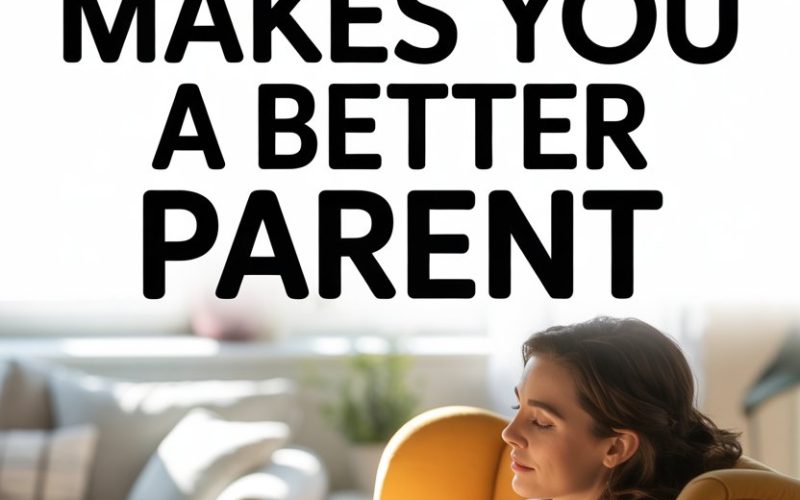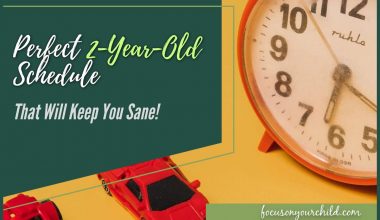Parenting is a bit like assembling flat-pack furniture: you’re given vague instructions, random spare parts, and you’re not entirely sure at what point you lost the Allen key.
The biggest difference is nobody expects the bookshelf to smile at you while you’re bleary-eyed and wondering how you got glue in your hair.
Yet, the myth persists that great parents should be endlessly available and self-sacrificing—always present, never frazzled, forever ready to tie a shoe, wipe a nose, or referee a sibling smackdown.
Here’s a little secret: the best parents are the ones who occasionally step away.
Yes, really. The ones who let the kettle boil, the ones who say, “I need a minute,” and the ones who—gasp—lock the bathroom door and just sit for a while.
Why Parents Run on Empty
Picture this: it’s 6:43 AM, someone’s yelling for Coco Pops, you’re trying to find the least-stained school jumper, and you’re pretty sure you just brushed your teeth with the kids’ glitter toothpaste.
Most parents operate on a steady drip of caffeine and chaos, running a marathon at sprint pace.
When you’re constantly “on,” stress accumulates faster than odd socks at laundry time.
The more stretched you become, the snappier your responses, the foggier your thinking, and the more you start to resemble a background character in a zombie apocalypse.
This chronic self-neglect isn’t just exhausting—it tangibly affects your patience, your empathy, and your joy. And your kids? They notice.
Turns out, children have a sixth sense for parental burnout. No surprise, a weary, irritable parent doesn’t exactly foster a peaceful home.
The Science Backs You Up
Here’s the good news: you have official, peer-reviewed permission to take a break. Studies have consistently shown that regular self-care improves parental mental health and reduces stress-related behaviours.
One research review from the Journal of Family Psychology found that parental well-being is directly linked to children’s emotional and behavioural development.
When you’re thriving, your kids are much more likely to thrive, too.
What’s more, researchers at the University of Waterloo uncovered that mothers who engage in self-compassion and personal care practices report lower levels of stress and higher satisfaction within their parenting roles.
Translation: a bit of ‘me time’ isn’t just a nice-to-have, but a must-have for raising happy, resilient humans.
What ‘Me Time’ Really Means
Here’s where things get tricky. Many parents imagine ‘me time’ as a spa weekend, or at least a full afternoon with a novel and something frothy in a mug. Who are these mysterious, childless parents of legend?
The actual definition is far more forgiving. ‘Me time’ means carving out even a sliver of your day to do something that restores you. For some, that’s a hot shower without an audience.
For others, it’s a lap around the block, two chapters of a book, or a phone call with a friend who remembers your pre-parent self.
Quality trumps quantity every time. Five guilt-free minutes can carry you further than an hour spent worrying about the laundry pile.
The trick is not waiting for a grand, uninterrupted stretch of time—it’s finding tiny pockets and protecting them like treasure.
The Ripple Effect on Kids
When you prioritise your own needs, your children get the best version of you—not the frazzled, short-tempered ghost haunting the kitchen at 8 PM.
Studies have shown that children of parents who model self-care grow up with better emotional regulation and more balanced perspectives on boundaries and self-respect.
It’s about showing, not just telling. When your little ones witness you putting on trainers for a solo walk or picking up a paintbrush, they learn that grown-ups need space to recharge.
This teaches them to value their own well-being, too.
The bonus? Kids often rise to the occasion when given a chance to practice independence.
Yes, they might eat Weetabix for dinner or put their pants on backwards, but these are the moments that build resilience—for them and for you.
Better Boundaries Begin at Home
Martyrdom isn’t a parenting requirement. In fact, consistently prioritising everyone else over yourself sets a worrying example.
Boundaries are healthy, even for five-year-olds with sticky hands and an aversion to bedtime.
Try setting clear expectations: “Mum is going to sit down with her coffee for ten minutes. Unless there’s blood or fire, you can wait.” At first, there may be protests. (Children are natural-born negotiators.)
Over time, kids accept that you are a person with needs of your own—a lesson that pays dividends when they start setting boundaries in their own relationships.
If guilt creeps in, remember that you’re not abandoning them to the wolves. You’re teaching self-reliance, patience, and empathy. Not a bad trade-off for a bit of peace and quiet.
Ideas for Snatching ‘Me Time’ Out of Thin Air
If you’re picturing a day at the spa, lower your expectations—a lot. ‘Me time’ comes in all shapes and sizes, many of them squeezed between nursery pick-up and dinner prep.
Here are some tried-and-tested ideas for busy parents:
- Wake up ten minutes earlier for a quiet cuppa (even if you have to hide in the pantry).
- Trade screen time for ‘quiet play’ time, and read a chapter of your book while the kids build a LEGO city.
- Pop on noise-cancelling headphones and listen to a podcast while folding laundry. It’s almost meditative—until you find a half-eaten biscuit in a pocket.
- Swap childcare with another parent for an hour. You watch theirs, they watch yours—everyone wins.
- Go for a walk, even just around the block. Movement clears the cobwebs and reminds you there’s a world beyond the living room floor.
- Try a mindfulness app like Smiling Mind or Calm, which offer quick, free exercises perfect for a few stolen moments.
Sometimes, ‘me time’ is simply saying no. No to one more bake sale, no to being room parent again, no to that group chat that’s seventy-three unread messages deep.
Banishing the Guilt Gremlins
Parental guilt is more persistent than glitter. Every time you reach for a moment alone, it whispers: “Shouldn’t you be doing something for them?”
The pressure to always be available is strong—especially when social media is filled with highlight reels of parents making gluten-free dinosaur sandwiches at 4 AM.
Here’s the reframe: your needs matter. When you honour them, you’re giving your kids permission to honour theirs. You’re not selfish, you’re a human being with limits.
Try this: instead of apologising for taking time for yourself, thank your family for supporting you. Shift the narrative from guilt to gratitude.
It’s not “Sorry, I need a break,” but “Thanks for letting me recharge, I’ll be a much better parent when I come back.”
Even the experts agree on the necessity of self-kindness: Dr. Kristin Neff, a leader in self-compassion research, reminds us that treating ourselves with patience and care makes us more resilient in the long run.
Making ‘Me Time’ a Habit, Not a Hail Mary
It’s easy to treat self-care as a last resort—a lifeboat only launched when your patience has capsized and the ship is going under. The real magic happens when you make ‘me time’ routine, not reactive.
Start small. Pick a regular slot in your week and guard it. Maybe it’s Sunday afternoon with a facemask (yes, even dads look fantastic in cucumber slices), or a walk after dinner once the kids are safely glued to Bluey.
The predictability is comforting for both you and your children.
Even better? Get everyone in on the act.
Family quiet time can be a lifesaver. Everyone picks a solo activity—even if the youngest just wants to stack cups.
For half an hour, the house hums at a lower volume. Afterwards, you all reconnect with a bit more space to breathe.
When Life Throws Curveballs
Sometimes, even the best-laid plans are torpedoed by a sick child, a work deadline, or a kitchen floor covered in jam (don’t ask). ‘Me time’ can feel like a luxury, or even impossible, under stress.
This is exactly when it matters most. Try micro-moments of mindfulness: two deep breaths at the sink, a cup of tea sipped slowly in the car, a few stretches before bed.
These tiny pauses are enough to take the edge off and remind you that you’re still in there, beneath the mountain of responsibilities.
If you’re in a real pinch, recruit help. Don’t shy away from calling in favours—grandparents, neighbours, or that friend who always says, “Let me know if you need anything.” People like to help, and you’re not a failure for accepting it.
Redefining ‘Good Parenting’
The narrative that good parents are self-sacrificing to the point of invisibility is outdated and, frankly, unsustainable.
Your children need to see you as a whole person—one who has interests, needs, and the guts to claim a moment of rest when it’s needed most.
You’re raising future adults, not just kids who can recite the times tables. Adults who can say, “I need a break,” without shame or apology.
Adults who know that joy isn’t selfish, and that looking after yourself is the bedrock of being able to look after anyone else.
The Best Parent Is a Happy Parent
Here’s the truth: a parent who occasionally puts themselves first is a parent who has more patience, more energy, and more genuine laughter to share.
You owe it to your children not just to survive the day, but to enjoy it—even if that means ducking out for five minutes with a biscuit and a cuppa behind a locked door.
Next time you’re tempted to feel bad about taking time for yourself, remember this: you’re not just looking after you. You’re modelling self-respect, resilience, and a little bit of joy for the people who matter most.
And if all else fails, lock yourself in the bathroom and pretend you’re at a spa. No one has to know.





